Neither rain nor snow or dark of night
Today there are no adoring crowds, no cheers, and no fireworks. The skies are gray and the mood is somber. Johnny along with nearly 190 other riders gather outside the Pony Express Stables. They have all just been informed that their services are no longer required.
“Damn! I’m just gonna get drunk” bemoans Johnny Fry of Kentucky, despite taking an oath of abstinence from profanity and alcohol. “I’m the first Pony Express employee and I dedicate 10 hours a day riding and risking my life for this company.” Johnny continues, “Just last year these streets are lined with people yelling and cheering when I ride out of that stable.” as the alcohol begins to do the talking.
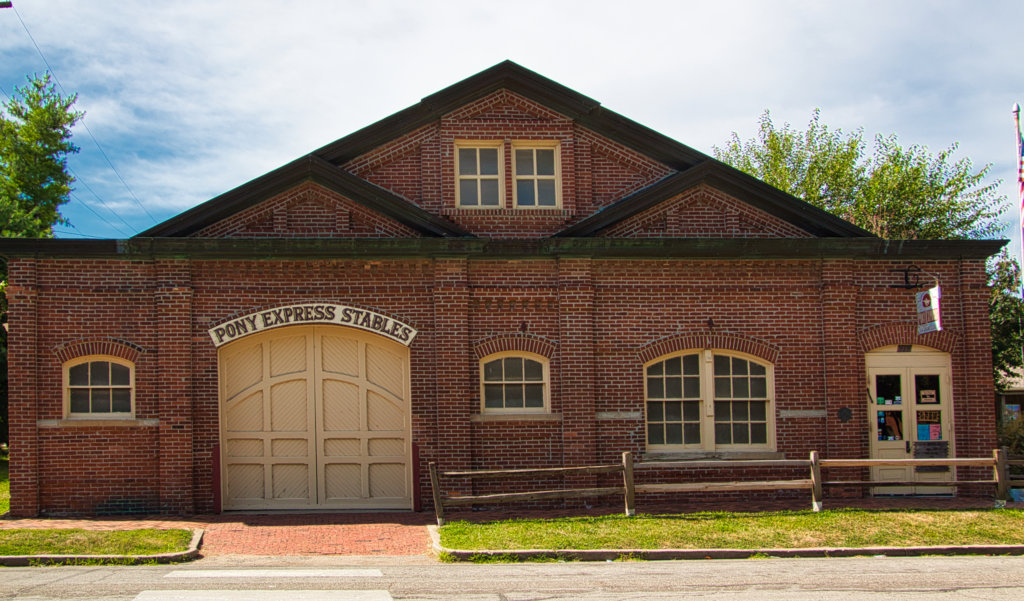
What am I to Do
“What am I to do, just hang up my mochila and collect yarn”, laments Billy Richardson. Before adding “I was the first rider, Johnny, they were cheering for me”
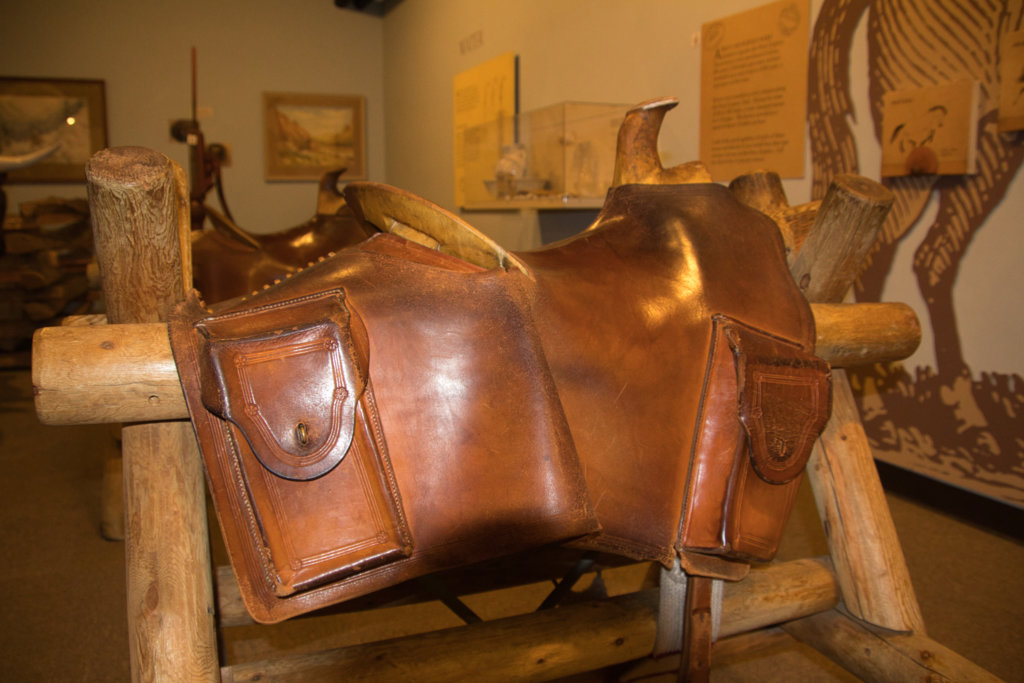
“It’s not fair, It’s just not fair!” cries Bronco Charlie Miller. “Quit your crying, Charlie, you’re only 11 years old for god’s sake” stammers Johnny as he tips his bottle of hometown bourbon.
“You guys can sit around here and whine all you want.” retorts William Cody. ” The open range calls to me, I’m gonna travel around. Maybe put on a show or two. I’ll call it Buffalo Bills Wild West show; Ya’ll can join me if you want.” The young Charlie Miller takes him up on his offer
“I’m going to the saloon at the Patee House” offers Johnny.
Pony Express – Serious Inquiries Only
Just the year before they all respond to an ad from Russell, Majors, and Waddell. They want to be a part of history; the Central Overland California and Pikes Peak Express Company.
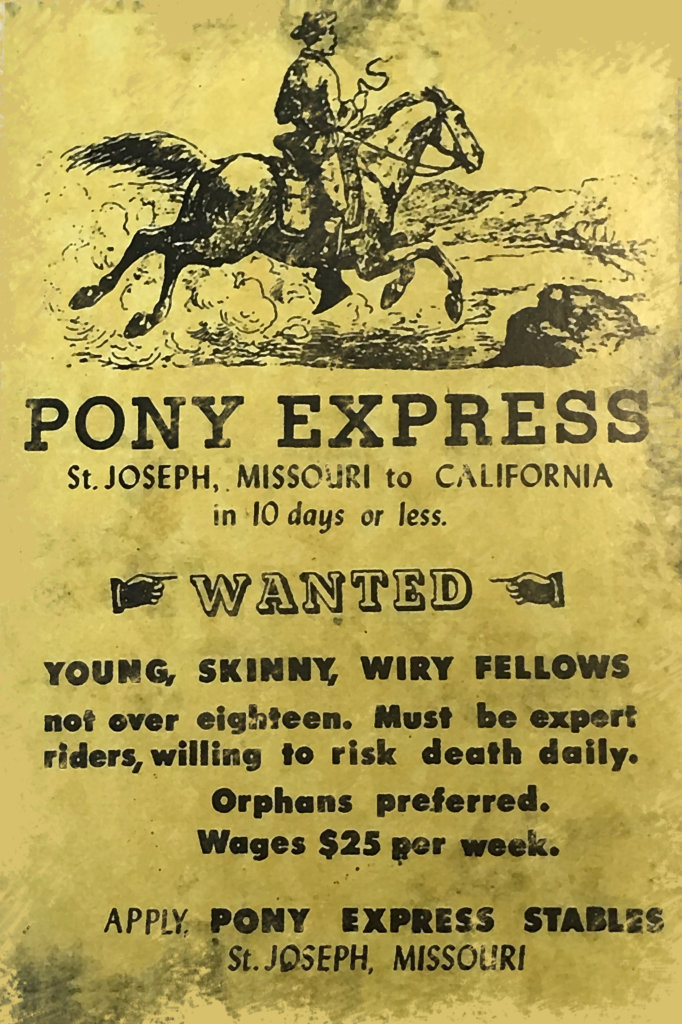
The companies partners have been running a successful west coast freight company for a while. With the westward migration well underway and Civil War tensions reaching fever pitch, East and West coast communications are essential. With a $1,000,000 government contract on the line, they are certain they can answer the need to provide mail service to California in under 10 days.
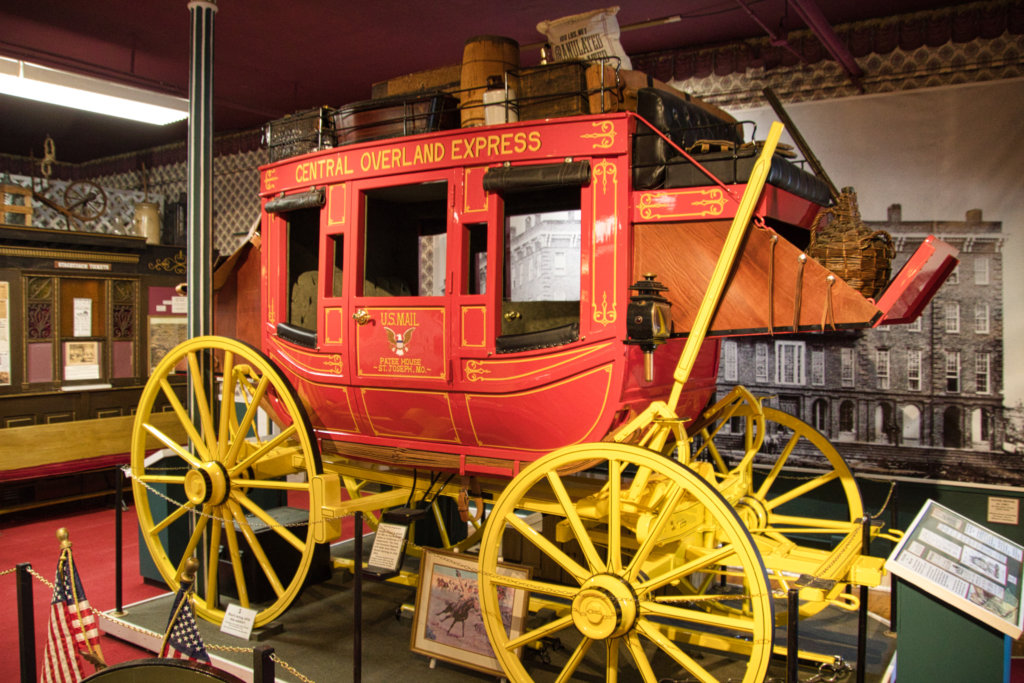
Through Rain or Sleet
Johnny and his fellow riders are to be part of a mail relay system from St. Joesph, Missouri to Sacramento, California.
Relay stations are set up every 10-15 miles, there are 184 stations along the long and arduous route used by the Pony Express. The stations are fashioned out of existing structures, several of them located in military forts, while others were built anew in remote areas where living conditions were very basic.
At the station, a rider mounts his horse and rides about 10 miles per hour to the next relay station, he has about 2 minutes to get a drink, freshen up, throw the loaded mochila over a new horse and proceed to the next relay station. He repeats this 6-10 times per day or about 100 miles before a new rider takes over. The Central Route traverses 1,960 miles through the wilds of Nebraska, Colorado, Wyoming, Utah, and Nevada before reaching California.
These riders epitomize the rugged individuality and personality of the wild west. They are risk-takers and crave adventure. They are courageous and determined. Through dust storms, and heat of the plains and on through the freezing ice and snow in the Rocky Mountains, they rode with their mission to deliver the mail as fast as their horse could carry it. Earning the motto “The mail must go through”.
Return to Sender
What long hours, bad weather, bison stampedes, and Indian attacks couldn’t stop (only losing one envelope) technology, innovation, and a losing bid could. Time was nipping at the heels of the Pony Express from day one. With the completion of the transcontinental telegraph system, the Pony Express is rendered obsolete after only 19 months of operation. The once-bustling order desk now sits idle and horses clopping through the office doors are no longer heard.
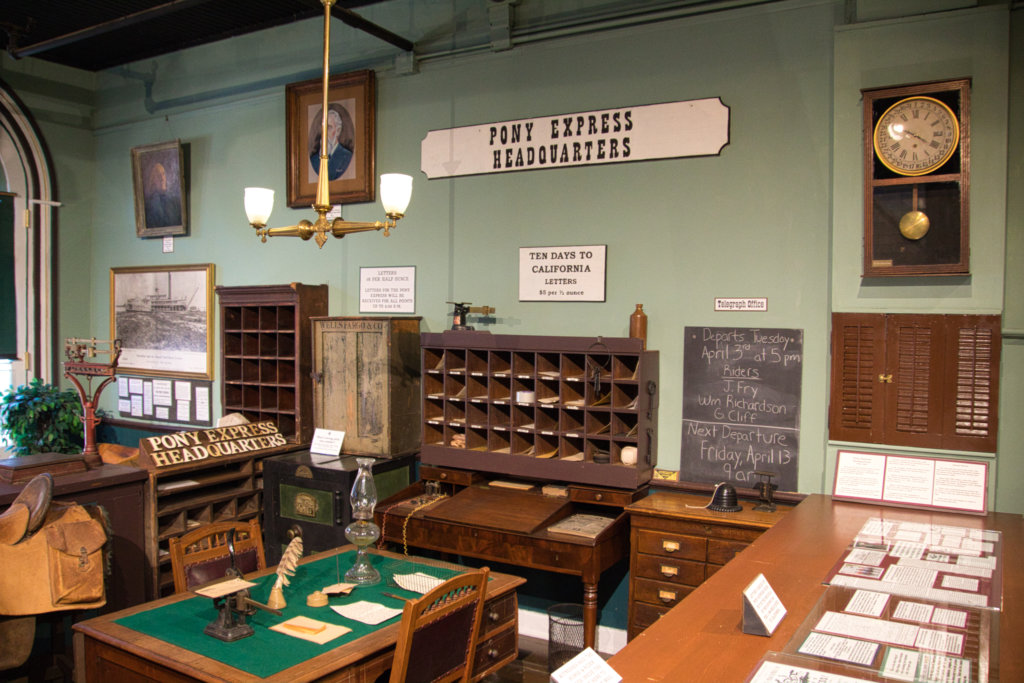
The Pony Express Headquarters at the Patee House, the luxury motel that riders once rode their horses through, is now a museum. Housing many diverse artifacts. The stables once a buzz of horses, blacksmiths, and care tenders is now too a museum. A once burgeoning industry, an example of the American spirit, grit, and determination is no more.
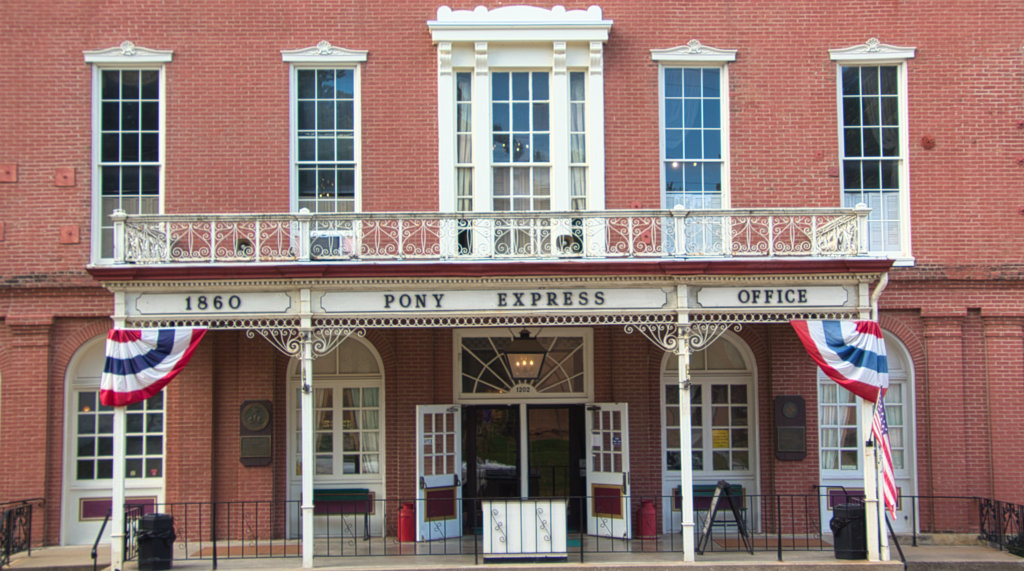
And that’s the way it is, October 26th, 1861.
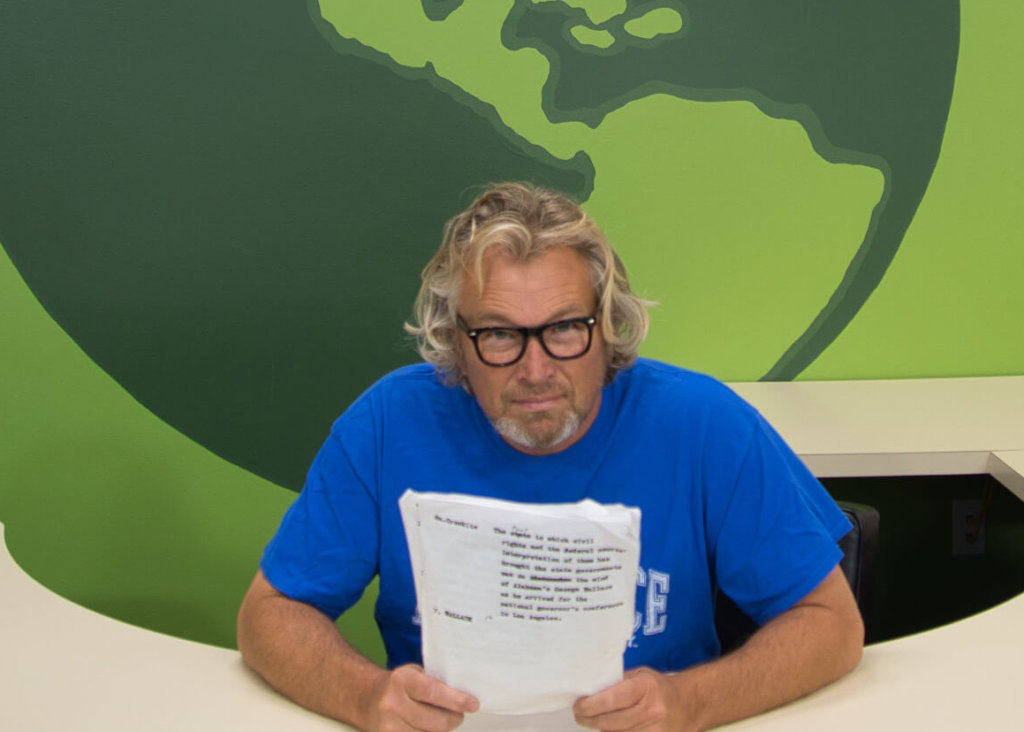
As seen on TV
If our insatiable need for quicker communications and the telegraph didn’t doom the Pony Express, television news certainly would have. No conversation about television news is complete without a nod to Walter Conkrite.
St. Joesph has a myriad of museums, about a dozen total. The Pony Express Museum and The Patee House and Jesse James’ house are must-sees. Another little more obscure and historical venue that catches my eye is the Walter Cronkite Memorial at Missouri Western State University.
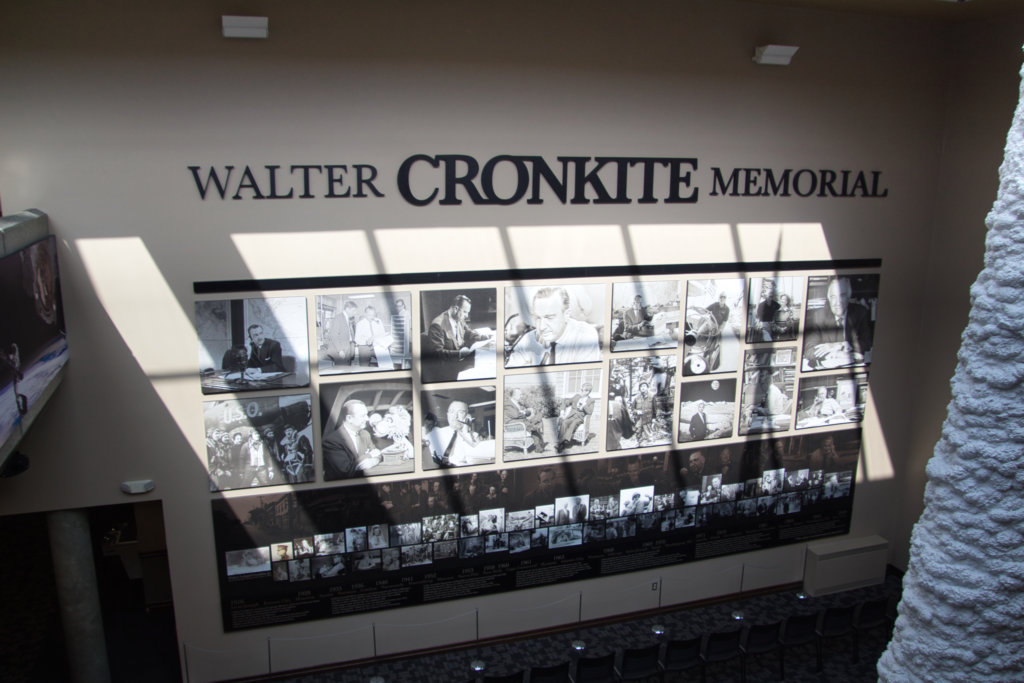
At a time when there were only 3 TV channels, I only remember one newscaster, Walter Cronkite. I certainly wasn’t a news junkie back then and hated when the news interrupted the Brady Bunch or Gilligans Island. However, I’ve always had a high regard for Mr. Cronkite.
The memorial spreads over the lobby areas on 2 floors of the Leah Spratt Hall.
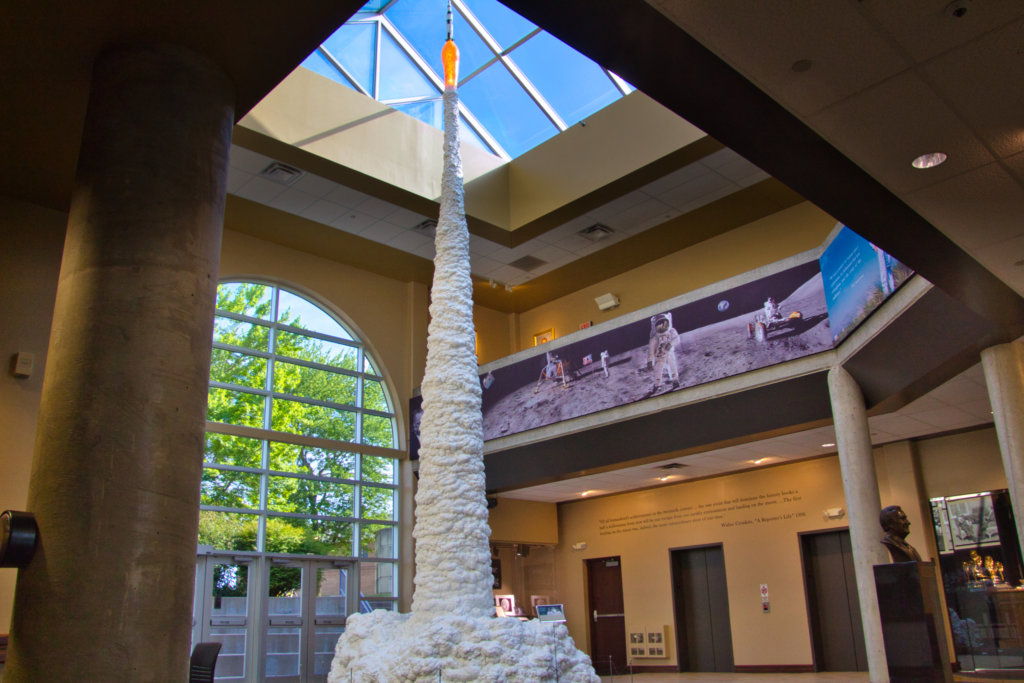
To the Moon
There is no mistaking the importance given to Cronkite during the US moon launches. He was the voice of such an important time in our history. Dedication to this era takes up much of the first floor.
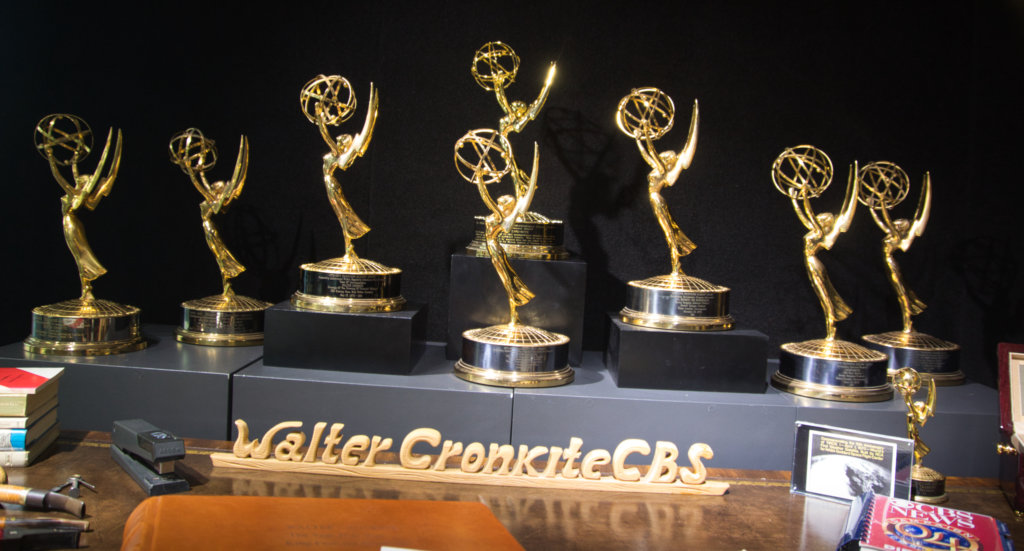
Other exhibits highlight his achievements, interviews with presidents, and coverage of the Vietnam war. The mockup studio with all the old cameras, phones, and typewriters is just amazing. Embedding a digital camera into an old TV camera for selfies is a stroke of genius. My favorite exhibit, however, is a kiosk of about 20 news events from the Cuban missile crisis, to The Beatles, to gas shortages. You can select and watch the original newcast as presented by Walter.
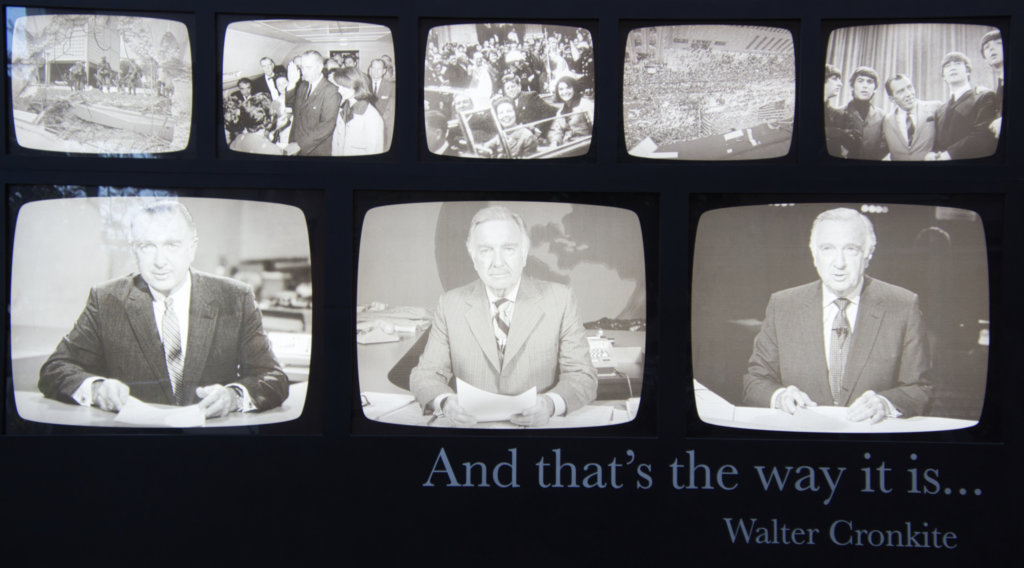
Mr. Cronkite earned the title Most Trusted Man in America. In an era when the new News Must Go Through, nice ride Mr. Cronkite.

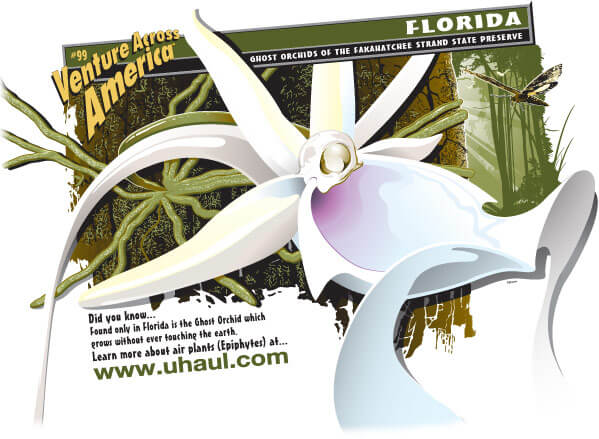

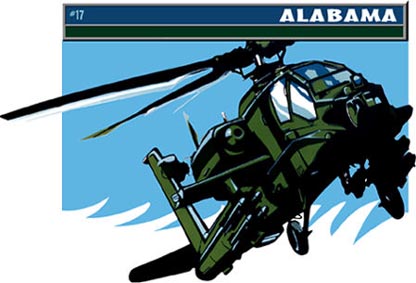
My postcard arrived today. Thank you!

